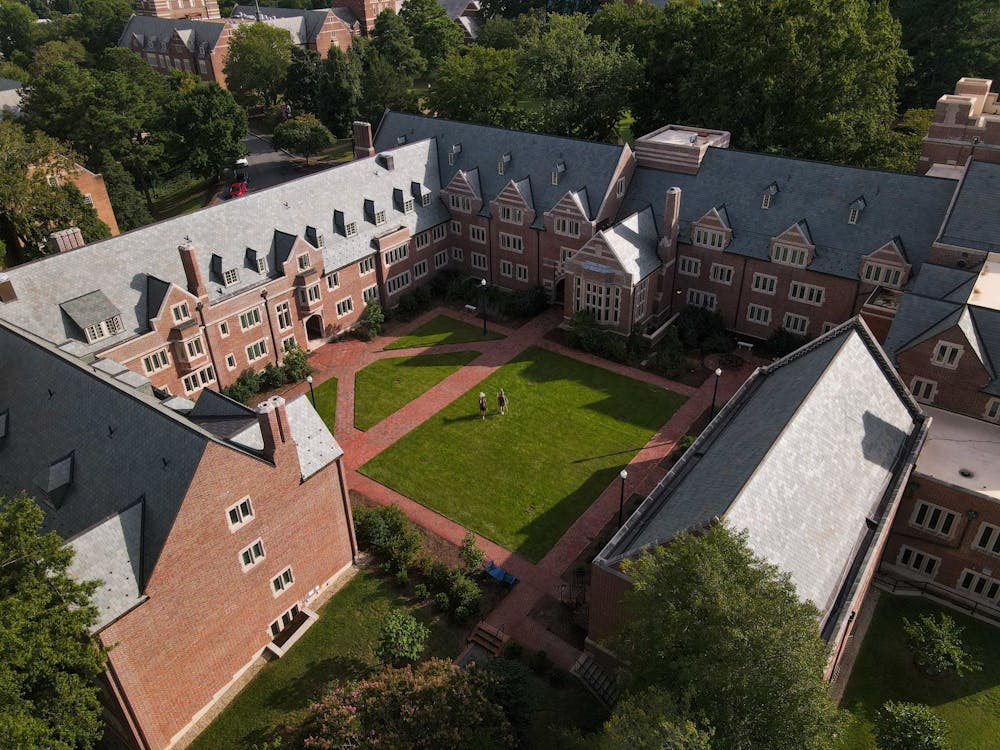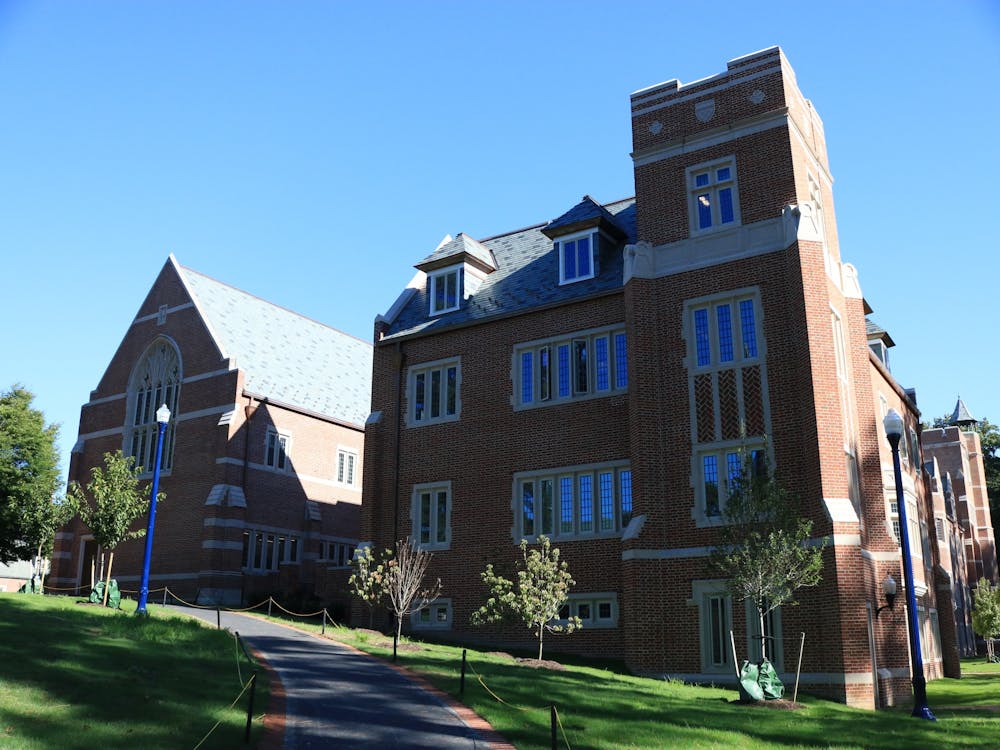As temperatures rise in Virginia, several UR students have raised concerns about air conditioning problems.
The lack of consistent air conditioning has left some students in discomfort inside their dorm rooms, particularly students living in older buildings on campus, including sophomore Emma Bender, who lives in Gray Court.
“There have been times I’ve woken up at 5 a.m. and the room is 85 degrees and I can’t do anything about it,” Bender said. “It gets really frustrating when you are trying to sleep and you can’t control the temperature of the room.”
Heating and air conditioning units in most of the older buildings on campus are supported by a two-pipe system, meaning that most buildings can either heat or cool at one time -- but not both, McKinley Wood, associate director of engineering services, said.
This includes large dormitories on campus, such as Gray Court and Robins Hall.
“We have installed four-pipe systems in some newer or recently renovated buildings that allow for heating and cooling at the same time,” Wood said. “We intend to install more of these systems when buildings are up for renovation.”
The air conditioning problems do not affect newer buildings on campus such as North Court, South Court, Jeter Hall and Thomas Hall, because of the four-pipe system, Wood said.
University Facilities monitors the weather forecast and adjusts the air conditioning accordingly, Wood said.
The continued air conditioning problems are a well-known issue for students across campus, but they can come as a shock to first-year students who have yet to experience the change from winter to spring at UR, such as first-year Charlie Klein, who lives in Wood Hall.
“My whole dorm group chat is just people complaining about their rooms being way too hot at night,” Klein said. “It makes it hard to wake up in the mornings for my classes too and it's basically impossible to fall asleep at night.”
Klein said that he and other Wood Hall residents had sent emails to Facilities regarding the problems with their air conditioning units, but they had not received a response.
“To be honest, it feels a little insulting with how expensive housing costs are to students that we don’t get proper air conditioning,” Klein said.
Enjoy what you're reading?
Signup for our newsletter
Wood said the ability to adjust air conditioning to the weather forecast allows for flexibility.
“Several government agencies and private companies use a calendar method to change over their air conditioning systems, which can cause uncomfortable conditions over an extended period of time until the predetermined date is met,” Wood said.
Bender said she and her roommates tried to find their own solutions to control the temperature.
“We’ve tried opening the windows and letting cooler air in,” Bender said. “That worked during the winter when it was colder outside, but now that it’s starting to warm up outside, that doesn’t really help much.”
Adding to the air conditioning problems is what Wood calls Richmond’s “shoulder seasons,” when the days fluctuate between hot and cold temperatures. This makes planning the control of air conditioning based on the weather forecasts more difficult for Facilities, Wood said.
Residential-style on campus housing available in the University Forest Apartments and Gateway Village allows for the ability to regulate air conditioning on an individual basis, Wood said.
Students continue to brace themselves for increasingly warmer temperatures without consistent air conditioning to aid in the comfort of their dorm rooms, Klein said.
“I hope they fix this problem sooner rather than later,” Klein said. “I’m getting really tired of waking up in the morning sweating. Me and my roommate both had to buy individual fans for our rooms just to get any kind of sleep.”
The Richmond area temperatures can reach over 80 degrees as spring turns into summer.
Bender said that she hoped the school would have better solutions to the air conditioning before it gets too hot.
“Once it hits April and May it really starts heating up,” Bender said. “If things aren’t working right by then, it’s going to be a big problem.”
Contact writer Ben de Lemos at ben.delemos@richmond.edu.
Support independent student media
You can make a tax-deductible donation by clicking the button below, which takes you to our secure PayPal account. The page is set up to receive contributions in whatever amount you designate. We look forward to using the money we raise to further our mission of providing honest and accurate information to students, faculty, staff, alumni and others in the general public.
Donate Now



